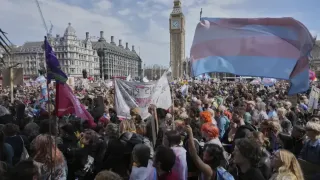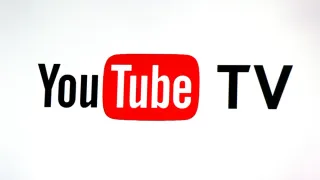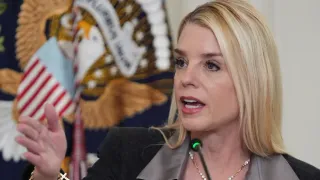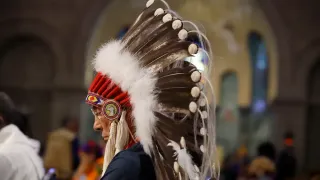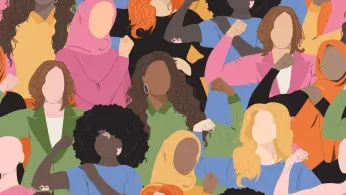
5 hours ago
“We Have Had Enough”: The Resounding Roar of 60,000 Women Standing Up for Trans Rights
READ TIME: 4 MIN.
Trans Awareness Week in the UK has just received a seismic boost of solidarity. In a move that feels both historic and deeply personal, 60,000 cisgender women signed an open letter declaring, “We have had enough”—enough of the relentless anti-trans rhetoric, enough of the manufactured ‘culture war’ over gender, and enough of having their voices misused to justify transphobia. The letter, coordinated by the Good Law Project, stands as a rebuke to those who claim to speak for all women while undermining transgender rights, and it’s already reverberating across queer news networks and social media feeds .
The signatories—ranging from students to MPs, activists to artists—have come together to say, in no uncertain terms: “Not in our name.” Their message is clear, direct, and powerful, echoing the sentiments of the letter itself: “We are cisgender women. We are feminists. We are mothers, daughters, sisters, and friends. We do not accept the weaponization of our identities against our trans siblings. We have had enough.”
For the UK’s LGBTQ+ community, this letter lands at a time when mainstream media and politics often seem locked in a tug-of-war over trans lives. Recent polling and research show the overall erosion in public support for transgender rights, particularly regarding access to healthcare and legal recognition . The anti-trans lobby has grown increasingly vocal, leveraging claims of ‘protecting women’ to justify policies that exclude, marginalize, and endanger trans people. But this open letter flips the script: it demonstrates that many women refuse to be co-opted into anti-trans arguments.
The emotional resonance is palpable. For trans people who have felt isolated by media narratives and political debates, the letter offers validation and hope. “For years, there’s been this idea that cisgender women are united against us. This letter shatters that myth,” said a spokesperson for Trans+ Solidarity Alliance .
The open letter isn’t just a list of names—it’s a rallying cry. “We are women. We are feminists. And we are sick of being spoken for,” reads one of its most quoted lines . The signatories call out the “weaponization of women’s voices” and stand in direct opposition to the figures who have tried to pit cis and trans women against each other.
The letter’s release comes as the BBC faces renewed criticism for its coverage of trans issues, with allegations of institutional anti-trans bias and controversial reporting methods . In this charged atmosphere, the open letter feels like a necessary corrective—a public pushback against the narrative that feminism and trans rights are fundamentally at odds.
The timing of this letter could not be more critical. In 2025, the UK’s Equality Act was amended, resulting in new guidance that explicitly excludes trans women from many sex-segregated spaces, from schools to shops to shelters . Human rights organizations and medical professionals have sounded the alarm about the real-world impacts: longer NHS waiting lists, disrupted prescriptions, and barriers to gender-affirming care . The Council of Europe has criticized the “baseless and concerning” level of transphobia infecting British society .
Against this backdrop, the letter signed by 60,000 women is both a shield and a spotlight. It protects trans people from the isolation of being targeted and brings public attention to the fact that anti-trans sentiment is not, and never has been, universally shared among women.
The intersection of feminism and trans advocacy is often painted as a battlefield. Yet, the signatories of this letter argue for a more inclusive feminism—one that recognizes trans women as women and trans men and nonbinary people as equally deserving of dignity and respect . Groups like the Trans+ Solidarity Alliance and the TIE Campaign have consistently advocated for this more expansive, welcoming view of gender justice .
The letter is part of a growing movement: hundreds of UK celebrities, including actors and artists, have signed similar statements in recent years, demanding progress and protection for trans rights . The arts and media worlds, often more progressive than Parliament, have been instrumental in keeping the trans rights conversation alive.
Social media has played a vital role in amplifying the message of the letter. Hashtags like #NotInOurName and #TransAwarenessWeek have surged, with thousands sharing personal stories and reaffirming their support. This online groundswell isn’t just symbolic; it creates community, offers resources, and helps counter the isolation that many trans people experience in their daily lives.
For cisgender allies, the letter is a call to action: to speak up, to listen, and to challenge anti-trans rhetoric wherever it appears. In the words of one signatory, “We’re done letting our identities be used as shields for discrimination. We stand with our trans family, today and every day.”
The open letter is more than a moment—it’s a movement. It reflects a growing awareness that trans rights are human rights, and that feminism must expand to include all women, cis and trans alike. As the UK grapples with political change and shifting cultural tides, this wave of solidarity is a reminder that progress comes from collective action, from refusing to be silent, and from building bridges between communities.
For LGBTQ+ readers, the significance is clear: the fight for trans rights is not a fringe issue. It’s at the heart of what it means to build a just, joyful, and liberated future. And with 60,000 women—and counting—raising their voices, that future feels closer than ever.
